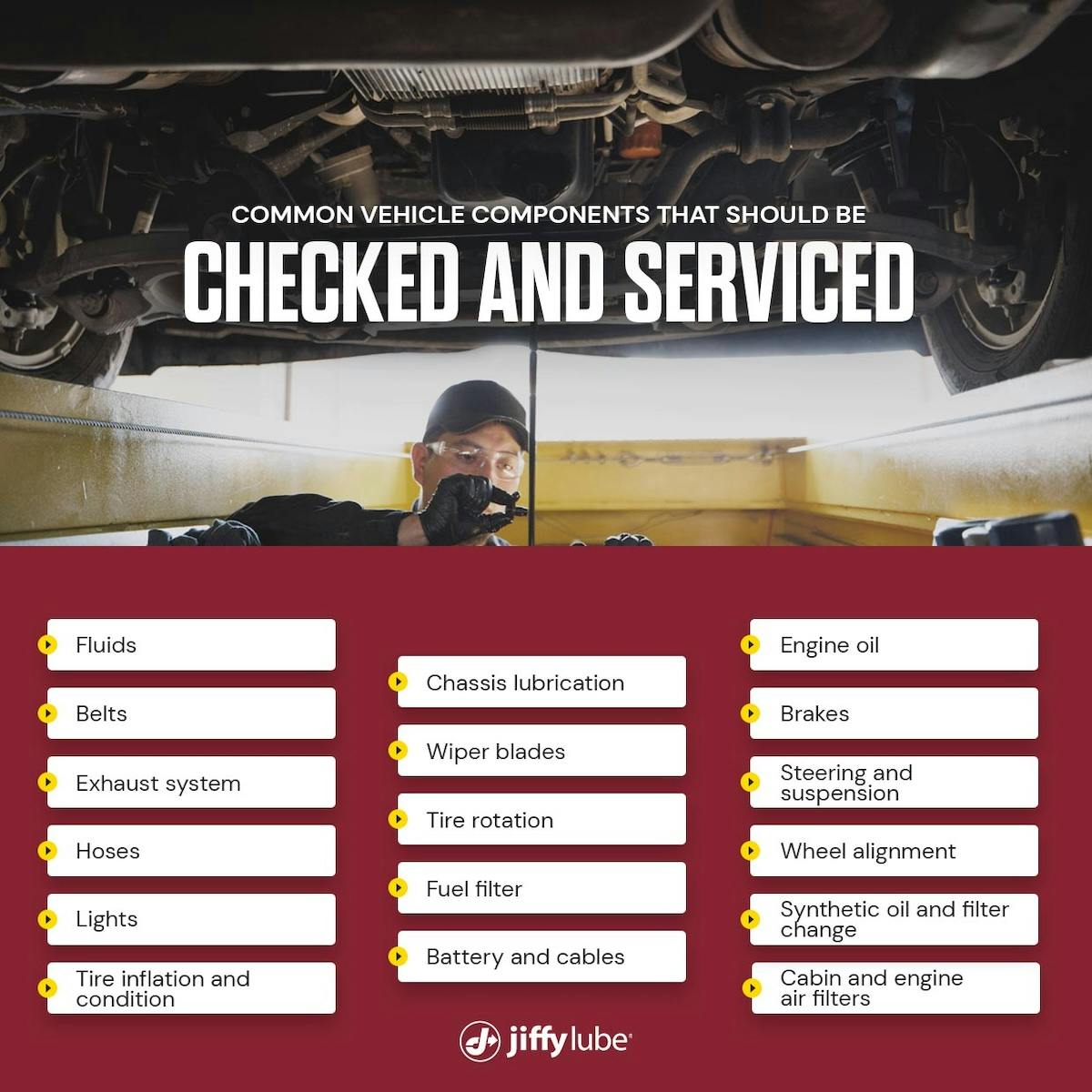A well-maintained vehicle helps keep you and your passengers safe and secure. And following a regular vehicle maintenance schedule is the best way to keep your vehicle on the road.
Sticking to a Regular Maintenance Schedule
Regular preventive maintenance is vital to keeping your vehicle on the road. Even the most reliable, high-quality cars require the motor oil, air filter, and automatic transmission fluid filter to be regularly checked and maintained. Tires need to be properly inflated and rotated on schedule, and you want to stay ahead of wear on windshield wipers, brakes, and suspension components to avoid costly repairs that crop up if they wear out or fail at the wrong time.
Ultimately, it is important to pay attention to your vehicle’s manufacturer recommendations for a regular maintenance schedule. Your owner's manual outlines the services and inspections your vehicle needs.
When you refer to your owner’s manual, you may see two different recommendation schedules – one for regular driving conditions and one for severe driving. Normal driving is typically defined as steady driving in non-extreme weather or environments. If one or more of the following conditions applies to your driving situation, your driving is considered severe:
Severe Driving Conditions
- Driving in stop-and-go traffic
- Driving in extremely hot or cold temperatures
- Driving at prolonged higher engine speeds
- Taking multiple trips averaging only 5 to 10 miles in length
- Frequent cold start-ups and shutdowns
- Extensive engine idling
- Towing or hauling heavy loads
- Driving in dusty or muddy conditions
- Driving in mountainous terrain
Since most drivers experience at least one of these conditions, following the severe maintenance schedule is recommended.
Typical Car Maintenance Schedule by Mileage and Time
The typical car maintenance schedule can vary greatly depending on your vehicle’s make and model as well as your driving conditions. Following Original Equipment Manufacturer (OEM) recommendations for your scheduled maintenance helps optimize the performance and reliability of your vehicle. For guidance, check your owner’s manual for the recommended maintenance schedule (which is often based on mileage and/or time intervals).
Below is a list of common vehicle components that should be checked and serviced.
- Fluids, such as automatic transmission fluid, windshield washer fluid, power steering fluid, coolant, and brake fluid
- Belts
- Exhaust system
- Hoses
- Lights
- Tire inflation and condition
- Chassis lubrication, if applicable
- Wiper blades
- Tire rotation
- Fuel filter
- Lights
- Battery and cables
- Cabin and engine air filters
- Engine oil
- Brakes
- Steering and suspension
- Wheel alignment
- Synthetic oil and filter change
Stop By Your Local Jiffy Lube for Your Car Maintenance Needs
You can save time and hassle of trying to check these components yourself by bringing your vehicle to Jiffy Lube®, where the trained technicians follow Original Equipment Manufacturer (OEM) recommendations for preventive maintenance, inspections, and auto services. With regular maintenance visits at your local Jiffy Lube, you can help keep your vehicle running safely and reliably for years to come.
NOTE: Not all services are offered at all Jiffy Lube service centers. Please call ahead or check jiffylube.com to ensure the service is available at the Jiffy Lube location near you



